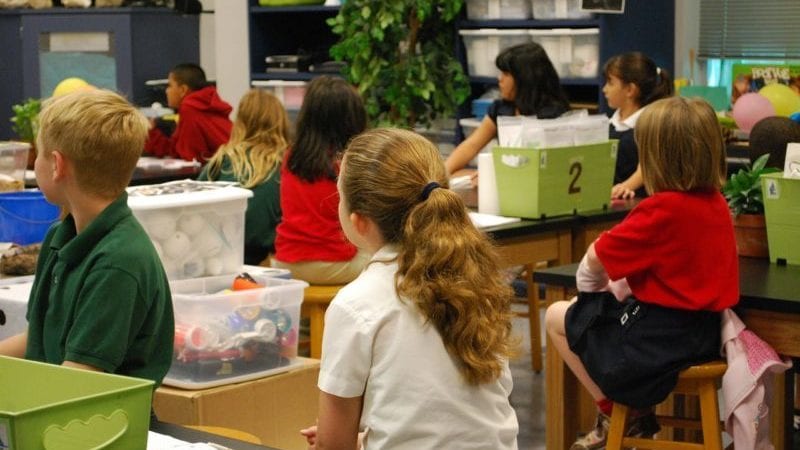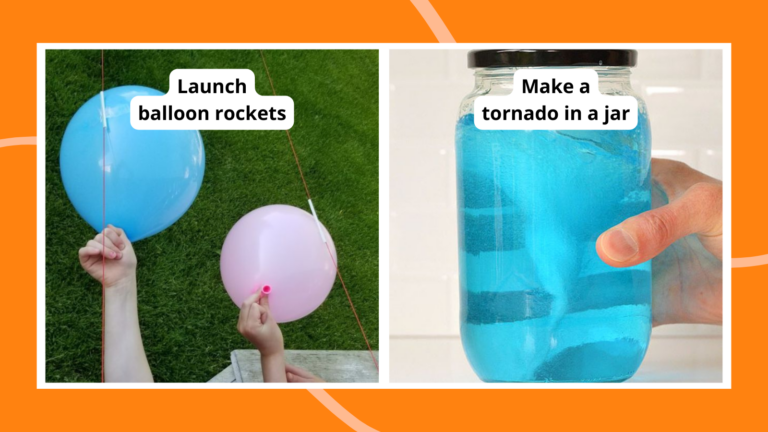This quick series of physics experiments is perfect for introducing little learners to concepts of push and pull! In the experiments that follow, kids will investigate how they can change the speed and direction of objects by applying varying degrees of strength. It’s a great way to get young students excited about physics and STEM in general.
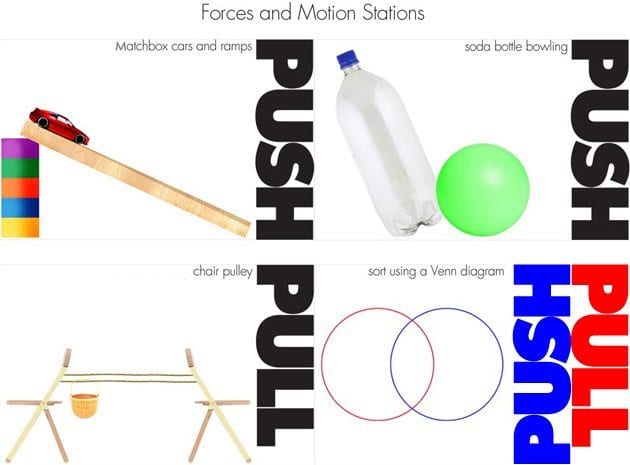
Step 1: Introduce the Physics Experiments
First, connect motion to what the children already know. Ask them, “How do we move?” Have children raise their hands and demonstrate. Next, drop a stuffed animal on the ground. Ask students, “How can I make the stuffed animal move?” They will think about their past experiences with moving objects to derive an answer. Then, explain that a push and a pull are both forces. Force makes an object move or stop moving. When we push something, we are moving it away from us. When we pull something, we are moving it closer to us. (Act out motions with students: push = palms out, push away from body, and pull = two fists on top of each other, pull toward body.)
Brainstorm: Create a t-chart, write down objects that can be pushed or pulled (objects at home, in the classroom, on the playground).
Step 2: Do Small-Group Instruction (Stations):
PHYSICS EXPERIMENT #1: SODA BOTTLE BOWLING
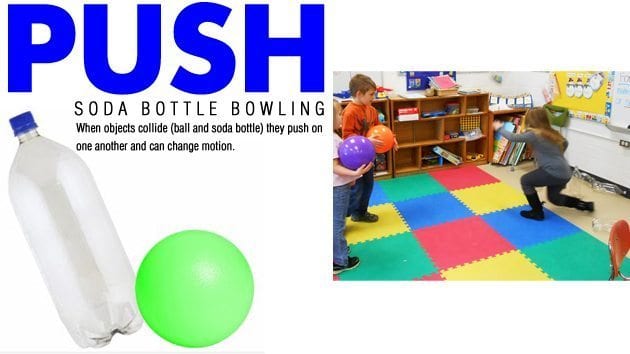
Push: Children experiment with pushing a ball hard and with less force to knock over soda bottles. They can compare a big push to a small push. What kind of push made the ball move the fastest? They will see how when objects collide (ball and soda bottle), they push on one another and can change motion.
PHYSICS EXPERIMENT #2: CHAIR PULLEY
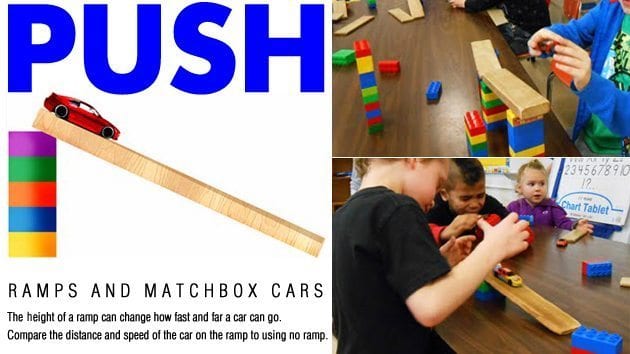
Pull: Loop a lightweight rope around the back of two chairs. Hang a small basket within the loop to send back and forth by pulling. Kids will experiment with pulling the rope hard and then gently. What kind of pull moved the basket the farthest?
PHYSICS EXPERIMENT #3: RAMPS AND MATCHBOX CARS
Push: Children create ramps using flat, rectangular wooden blocks and Duplo Lego bricks. They will investigate how the height of a ramp can change how fast and far their Matchbox car can go. They will also compare the distance and speed of the car on the ramp to using no ramp.
PHYSICS EXPERIMENT #4: SORTING PUSH AND PULL
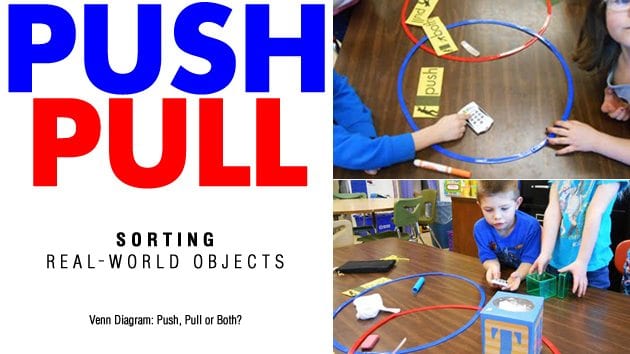
Sort: Put out a paper bag that contains various real-world objects. Children collaborate and sort the objects using a Venn diagram (hula hoops). Children place the objects in the appropriate groups using this free printable” push, pull or both.
Step 3: Reinforce the Concepts
After the physics experiments, children can play computer games to reinforce push and pull! I like these two:
- Push: Piggy Push from Cool Math Games
- Pull: Hook the Fish from Cookie
Or you can watch a video to reinforce pushes and pulls. For further reinforcement, the next day, have children go on a scavenger hunt and try to find things around the classroom that they can push and pull.
Step 4: Assessment
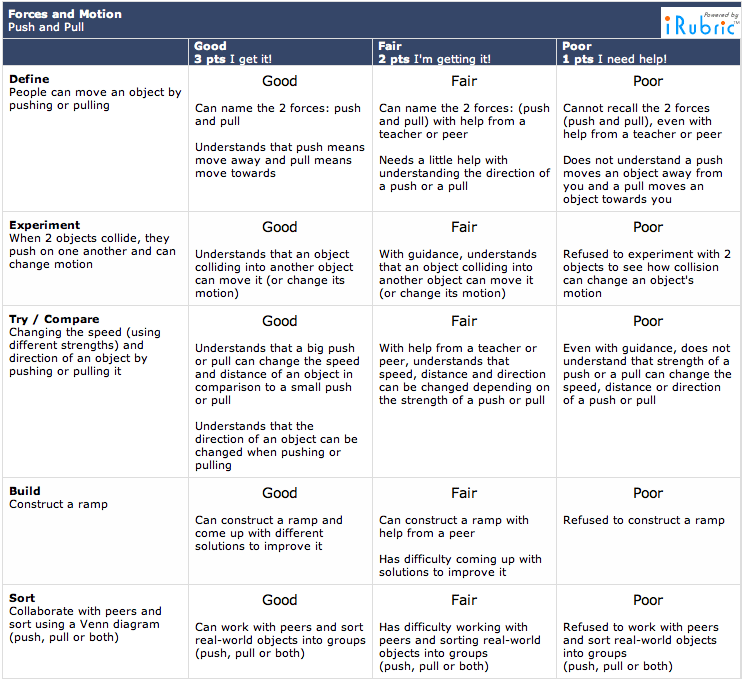
Children are assessed through observation, questions, and conversations while they work in small groups at stations, interacting with various objects that demonstrate pushing or pulling. I took notes and scored the children using a rubric I made in iRubric. You can download it for free!
